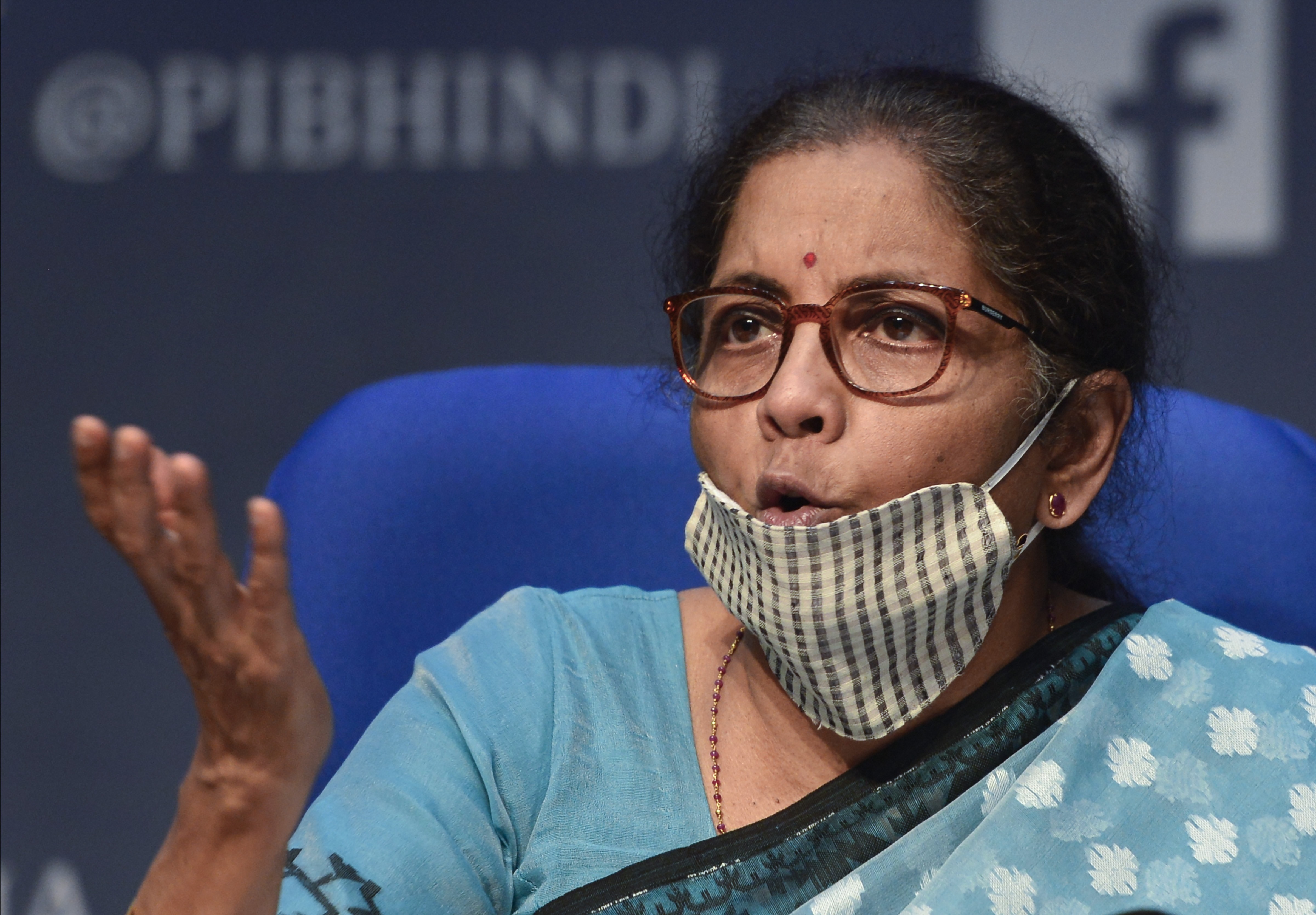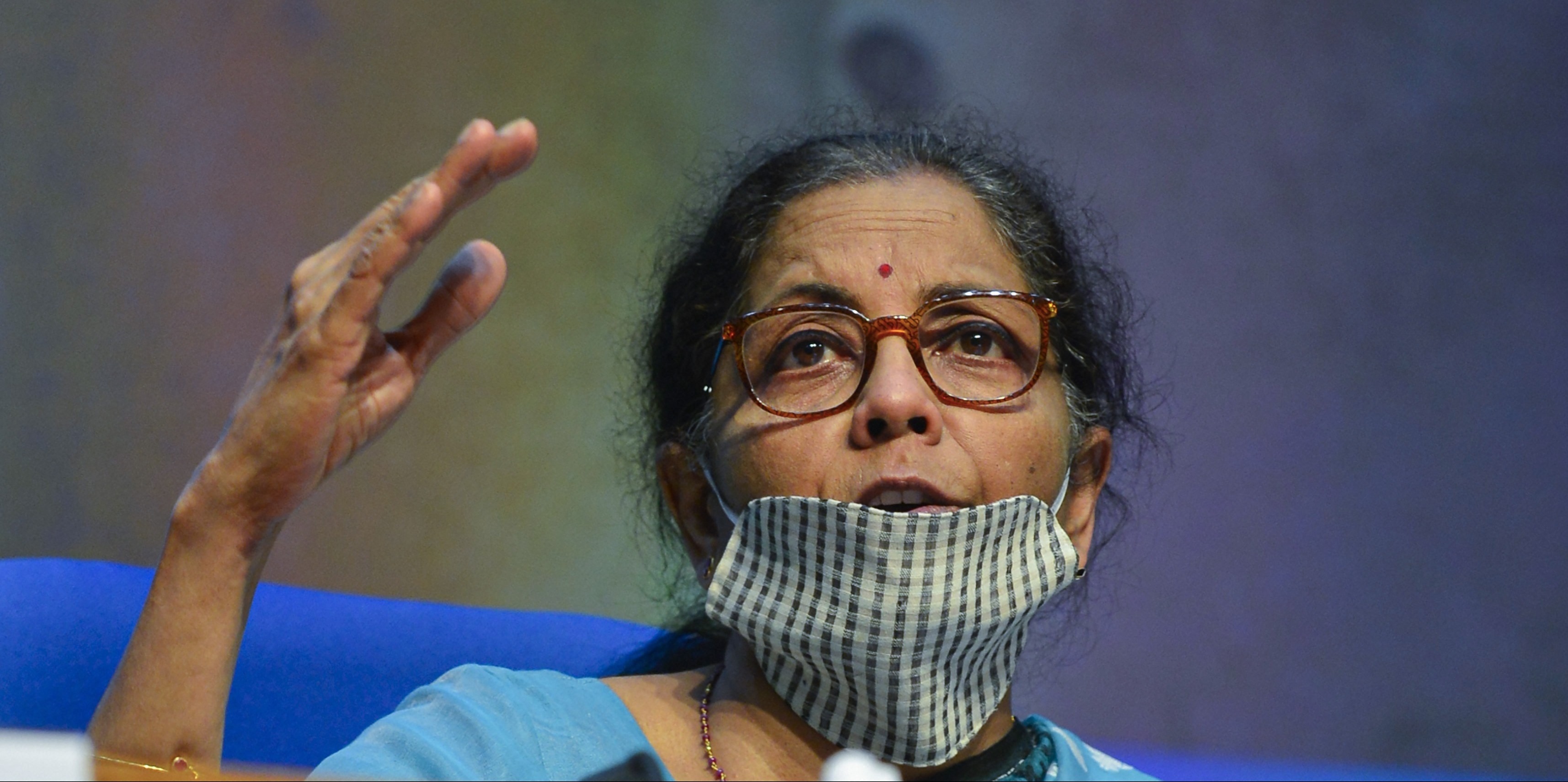MSME definition
As part of the changes, the definition of MSMEs has been redefined so that if they grow in size they can still reap the benefits of government schemes. The investment limit which defined an MSME has been increased to Rs 1 crore from an earlier Rs 25 lakh.
Business and employees will get a further Rs 2,500 crore worth of Employee Provident Fund support, providing liquidity relief for business and workers for the next three months.
Power companies
Power distribution companies whose revenues have nosedived due to the lack of economic activity will get a one-off liquidity infusion of Rs 90,000 crore. This will give a “fillip to discoms with plummeting revenue and facing an unprecedented cash flow problem,” the government tweeted.
The funds will be injected by the Power Finance Corp and Rural Electrification Corp and will be set against state guarantees and will enable power distribution firms to clear their liabilities to the power generation companies. Ultimately, the benefits are meant to be passed on to electricity customers under a rebate given to discoms by the Central Public Sector Generation.
Liquidity infusion for NBFCs
There will also be a Rs 45,000-crore liquidity infusion through a Partial Credit Guarantee Scheme 2.0 for non-banking financial companies (NBFCs) that have a low credit rating. The aim is that this liquidity will enable them to lend to the MSMEs.
The government also said it will no longer allow global companies to tender for government procurement contracts worth up Rs 200 crore It’s part of the “self-reliant India” drive that will also serve the goal of “Make in India.” The vision of a “self-reliant India”, the prime Minister noted, rests on five pillars -- the economy, infrastructure, system, demography and demand.
'The intention is to build local brands and make them world class. It's not about looking inwards or being isolationist. It's about a confident India that contributes to the globe,' Sitharaman told reporters in a video conference call. 'The measures will spur growth and build a self-reliant India,' she added.
Collateral-free loans
Sitharaman announced Rs 3 lakh crore worth of collateral-free loans for MSMEs that will be available until end October. The loans, which will be 100 per cent credit guaranteed, will have a four-year tenure and feature a 12-month payment moratorium. The funds should help 45 lakh units start up again and protect jobs, the government said.
However, Animesh Saxena, president, Federation of Indian Micro and Small & Medium Enterprises (FISME), speaking to a business magazine, dismissed the package, saying: “We need oxygen and immediate ventilator. Most MSMEs need a ventilator.” The fear is that even after today’s package, the banks will not release loans to MSMEs.
Finance minister Nirmala Sitharaman has announced the first instalment of the government’s mega-package to jump-start the coronavirus-hit economy and create an “atma nirbhar” (self-reliant) India. The string of measures include Rs 50,000-crore worth of tax breaks for workers that will temporarily increase take-home pay and provisions that aim to make it more attractive for banks to give loans to support for small-and-medium sized businesses.
The corporate sector has been calling for urgent measures to stimulate the economy reeling from eight weeks of stay-at-home orders aimed at containing the potentially deadly virus.
Sitharaman, who said more measures will be announced in coming days, said Prime Minister Narendra Modi in his speech on Tuesday had enunciated “a comprehensive vision” for India. Modi told citizens in his address broadcast nationwide that the government must seize the chance created by the Covid-19 pandemic to reform its economy and initiate “bold reforms.”
Modi’s plan involves Rs 20 lakh crore in stimulus for the economy, equivalent to 10 per cent of the gross domestic product, that he said would make this “India’s century.”
The Prime Minister’s headline figure of Rs 20 lakh crore includes Rs 6.5 lakh crore already announced by the central bank and the government’s first relief package in March, meaning that the new money represents around Rs 13.5 lakh crore.
In a move to give consumers extra purchasing power, the government is giving a temporary tax break of 25 per cent for tax deducted at source (TDS) and tax collected at source (TCS). The reduction -- to take effect May 14 and continue until the end of this financial year on March 31, 2021 -- will put an additional Rs 50,000-crore in consumer pockets.
The government is also slashing provident fund rates from 12 per cent to 10 per cent, which will result in both companies and employees getting more cash in hand during this period. Besides this, the due date for all income tax returns for the last financial year to March 31, 2020 will be extended to November 30, 2020.
Wednesday’s announcement is the first of a series that aims to ensure that large numbers of firms do not go out of business in the coming months. Modi said the package would focus on “land, labour, liquidity and laws” and cater to “various sections including cottage industry, medium- and small-enterprises, labourers, middle class, industries, among others.”
Wednesday’s announcements focused mainly on MSME’s (Micro, small and medium enterprises), real estate developers and power distribution companies.
The announcements “will go a long way in addressing issues faced by businesses, especially MSMEs. The steps announced will boost liquidity, empower the entrepreneurs and strengthen their competitive spirit,” Modi tweeted Wednesday.
Former finance minister P. Chidambaram welcomed the support measures for MSMEs but said the “devil was in the details.” He strongly decried, though, that Wednesday’s announcement contained “nothing for the lakhs of poor, hungry and devastated migrant workers who have walked and many thousands (who) are still walking back to their home states.”
He said, “There is also nothing by way of cash transfer to the bottom half of the population who have been pushed into destitution.”
Act of God
Additionally, the housing ministry will issue an advisory to states allowing real estate projects to invoke force majeure (Act of God) for all projects expiring on or after March 25, 2020. This will give flexibility to contract enforcement. The relaxation in project timelines “will bring in a sigh of relief to the developers,” said Niranjan Hirandani, president of the National Real Estate Development Council or NAREDCO.
Two months ago, Modi’s government announced direct cash transfers and food security provisions targeting the poor but was accused by critics of doing far too little.
To ease pressure on contractors, all Central agencies from railways and the road ministry to the central public works department can give them an up to a six-month extension, without any penalty cost, to complete construction work and carrying out goods-and-services contracts.
Pro-poor measures
The finance minister started on a defensive note by reeling off a list of pro-poor measures the government has taken during the last six years it has been in power. “You are speaking with a sensitive and responsive government that believes in dialogue,” she said.
To give further support to MSMEs suffering financial difficulties, the government will facilitate provision of Rs 20,000 crore as subordinate debt or unsecured loans or bonds,
Relief for contractors
To ease pressure on contractors, all Central agencies from railways and the road ministry to the central public works department can give them an up to a six-month extension, without any penalty cost, to complete construction work and carrying out goods-and-services contracts.











